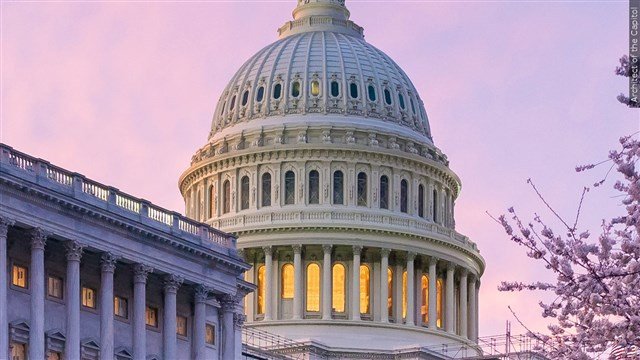Senators announce $5.4 million in federal funds for Oregon hazardous fuels transportation projects to cut wildfire risk

WASHINGTON (KTVZ) – Oregon Senators Jeff Merkley and Ron Wyden announced Thursday that more than $5.4 million is coming to Oregon from the Inflation Reduction Act — the largest investment in clean energy and climate action ever — for eight hazardous fuels transportation projects across the state.
The federal funding awarded by the U.S. Forest Service will reduce the risk of wildfires by moving hazardous fuels—smaller trees, live or dead brush, tree limbs, and other natural debris—from national forests and grasslands to facilities for use in wood products and wood energy production.
“2024 was another record-breaking year for wildfires burning acres across our state, especially devastating in Eastern Oregon. We need an all-hands-on-deck approach to combat and help prevent these destructive fires,” said Merkley, who serves as chair of the Senate Interior Appropriations Subcommittee that funds the U.S. Forest Service.
“This federal funding that the Forest Service is investing in our industries and communities hardest hit by mill closures is a tremendous economic boost, while reducing wildfire risk across Oregon. I will continue to tackle climate chaos with the urgency it demands, as increasingly frequent and severe wildfires threaten our homes, businesses, and way of life.”
“Taking the offensive against wildfires with federal investments just like these are a must to reduce the risk of bigger and more destructive blazes threatening lives and property throughout Oregon,” said Wyden. “I’m gratified the Inflation Reduction Act I worked to pass is generating these vital returns for rural parts of our state. Oregonians in those communities suffered greatly this past year from infernos burning nearly 2 million acres in our state, and these federal funds will provide opportunities for them to fight back effectively.”
The awards to Oregon are part of a $20 million effort by the Forest Service to fund 34 entities for 66 projects as part of its hazardous fuels transportation assistance program. These funds provide economic benefits to the timber industry and local communities while supporting the Forest Service’s Wildfire Crisis Strategy.
The eight projects selected in Oregon are as follows:
- Iron Triangle ($3,169,008) – This project occurs on the Malheur National Forest and provides jobs in one of Oregon’s most economically disadvantaged areas that has been impacted by mill closures. The project includes removing approximately 240,000 tons of sawlogs and non-saw from almost 9000 acres.
- Forestry First ($712,577) – The projects occur with the Central Oregon Wildlife Crisis Landscape and involve the removal and utilization of 32,795 tons of biomass. This proposal would help retain crucial forest product industry in Oregon.
- Lomakatsi Restoration ($462,768) – Project includes the removal and innovative utilization of 7,500 green tons of biomass material within the Klamath River Basin Wildfire Crisis Landscape to create HumiSoil. Lomakatsi works with and employs many Klamath and affiliated tribal members.
- Cow Creek/Umpqua Tribe ($375,000) – The project partner is the Cow Creek Band of the Umpqua Indian Tribe and occurs on Umpqua Tribal lands adjacent to Forest Service lands in Oregon. The project includes 65,000 tons of material on 1,000 acres. Wood processing would occur at multiple sites including Umpqua Indian Forest Products.
- Malheur Lumber ($310,384) – This project is located on the Ochoco National Forest in a Collaborative Forest Landscape Restoration Project and Joint Chief’s landscape and includes the treatment of 9,732 CCF of small diameter sawlogs and biomass on 1,073 acres. This project occurs within an underserved area impacted by mill closures.
- Mineral Creek Logging ($248,668) – Project includes removing 4,000 tons of non-saw Timber Subject to Agreement material from 402 acres on the Rogue River-Siskiyou. This project provides benefits to underserved communities.
- Biomass One ($88,000) – Project is within a Collaborative Forest Landscape Restoration Project landscape on the Rogue River-Siskiyou National Forest and Crater Lake National Park. The project involves the removal of 15,000 green tons of biomass material on approximately 950 acres.
- High Desert Partnership ($50,000) – This project occurs on the Malheur National Forest and helps address one of Oregon’s most economically disadvantaged communities. The project includes removing biomass from 300 acres and have been proposed by a community-led initiative that includes representation from the Burns Paiute Tribe.